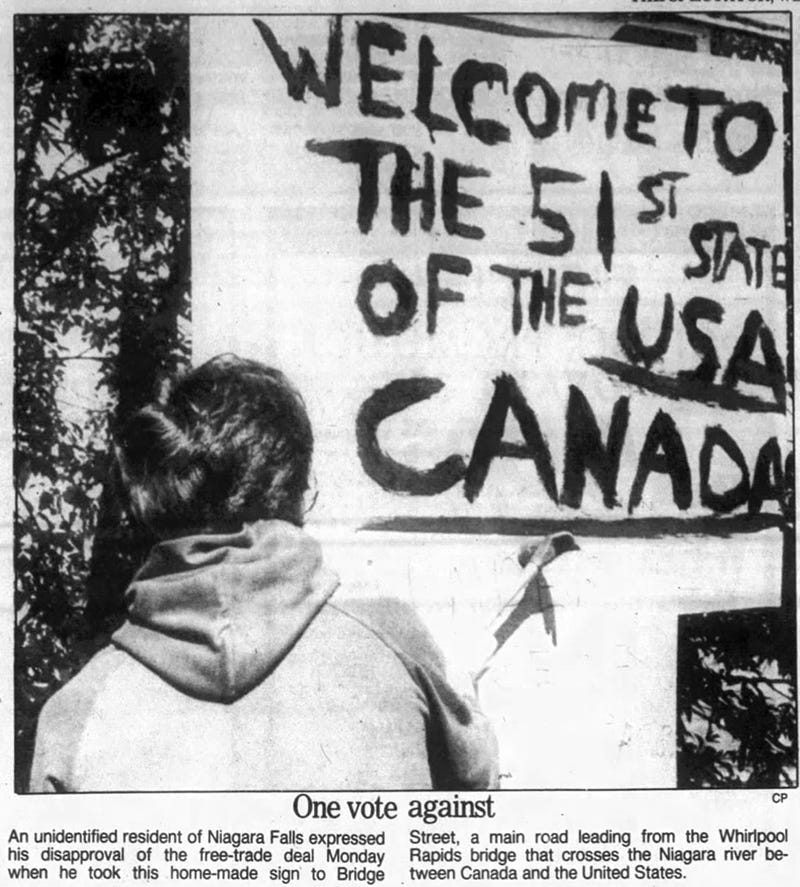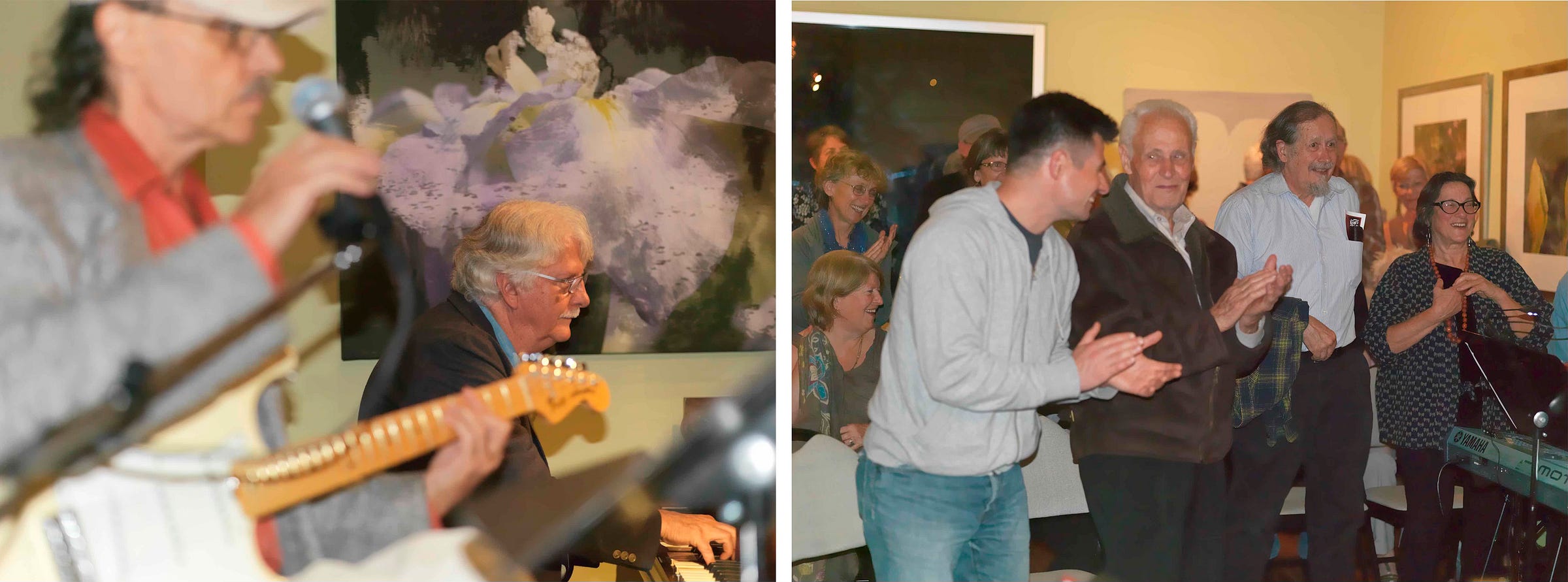
In 1969 I was in my final year of a BFA degree in theatre at University of Alberta. I was one of several students invited to read poetry by Canadian authors at Hurtig Books in downtown Edmonton. I don’t remember what I read but I do remember being nervous and over-awed to be reading in this bookstore owned by the feisty, and already influential Mel Hurtig.
NAFTA was a few years off, but the debate over Canadian sovereignty and the pros and cons of so called “free trade” with the USA were hotly debated. Mel Hurtig was in the vanguard, using his bookstores, then his publishing company, finally his own books to champion a view of Canada’s potential. In 1972, he became a founding member of the Committee for an Independent Canada and served as their national chairman. In 1985, he was founding chair of the Council of Canadians.
I was in Toronto for much of the 1970’s. Although I didn’t know it then, I was in the midst of a flowering of Canadian culture unparalleled since, and it was bound up with cultural nationalism. The colonial yoke of Britain, which had guided and oppressed Canadian culture, was falling away. Canadian owned and operated publishing companies, such as McClelland and Stewart, Douglas & McIntyre, Raincoast Books, but also small presses like Winnipeg’s Turnstone Press, which was founded in 1976, and NeWest Press of Edmonton, founded in 1977 where publishing Canadian authors, who were becoming known internationally. Artist owned and operated galleries, such as Grunt Gallery, in Vancouver, ( which is still going strong), sprang up in every city. Theatre companies such as Tarragon Theatre, Factory Theatre Lab and NDWT Company (N’ere do well thespians) were producing Canadian plays. Much of what we now take for granted, as Canadian culture, was birthed in this period. We can look back and see Canada pre and post NAFTA.
“Sovereignty is a very precious commodity, one of the essential ingredients of nationhood. Once forsaken, it can be lost forever.” — Toronto Star, October 6, 1987.
Toronto Star business writer, David Crane wrote, also in 1987, “rarely has a self-respecting nation given away so much sovereignty for so little.”
I don’t recall how many “Fund the CBC” campaigns I’ve lived through. With each one it was a leaner, starving, more wrinkled public broadcaster we were trying to save. McClelland & Stewart is now an imprint of Random House, an American publishing giant. Cross border access for performers is not equal: Americans are much freer to work in Canada than Canadians in the USA. Etcetera.
Free trade is not solely responsible for what has happened in the music industry, but the fact that it is controlled in North America from the USA plays a pivotal part. I know this bit because I am married to a musician. With music distribution largely controlled by monster streaming services, such as Spotify, musicians have been cut the slimmest piece of humble pie: Spotify pays royalties of $.003 - $.005/play. You have to have 5000 plays of a song for each $5.00 you earn.
At least we can still produce home concerts.

I’ll close this post with a piece I wrote about a series of plays which might not ever have been produced were it not for the extraordinary enthusiasm and support for the arts we enjoyed in Canada in the 1970’s. Perhaps the current trade war is waking us up, in a good way.
St. Nicholas Hotel by James Reaney
Part 2 of the Donnelley Trilogy
1974
Under a full moon in February of 1880, a mob formed in Biddulph township, a few miles north of London,Ontario. Using clubs, a pitchfork, axes, a spade and guns, 40 or so men slaughtered five members of the Donnelly family, including two women. The identities of the killers—among them a police constable, magistrates and a justice of the peace—were widely known in the area, yet despite the presence of an eyewitness, who escaped being killed by hiding under a bed, no one was ever convicted of the crime.
I’m in Halifax for August to help my friend, Nancy Beatty, with her little boy David. Nancy’s in Neptune Theatre Company this summer with Keith Turnbull directing. She got me an invitation to be in the workshop for St. Nicholas Hotel, the Donnelly Trilogy Part 2 by James Reaney which Keith is also directing and will produce at Tarragon Theatre this fall.
We rehearse in a cavernous former spice warehouse, near the docks. The wood is soaked in cinnamon, cloves, allspice. The smell is intoxicating, the work riveting.
Mr. Reaney, the playwright, is at every rehearsal. He’s a small thin man with grey hair sprouting around his bald patch, a bristle mustache and horn rimmed glasses. He perches on his stool like a raptor.
The Donnellys is the true story of an Irish family who emigrated to Canada in 1842 looking for a new life free from violent feuds and battles over land, rents and religion. James and Johanna Donnelly were ‘blackfeet’, so called because they wore black shoes to indicate their resistance to the ‘whiteboys’ or ‘whitefeet’, a vigilante protest group which originated in northern Ireland, and then moved into southern Ireland. Protests against land reform legislation and collection of tithe’s for the Protestant church swelled into incidents of violence and lawlessness.
In Canada the Donnelly’s homesteaded in Biddulph township north of London, Ontario. Their Irish neighbours were the same mix of ‘whitefeet’, ‘blackfeet’ and ‘orangemen’ they had hoped to escape. The feud re-surfaced, first as contested land claims, then as fierce competition between rival stagecoach lines, one of which belonged to Will, a Donnelly son.
Stagecoach feuds are the focus of this play, but Mr. Reaney writes back and forth in history with scenes which allude to past events and others which foreshadow the future massacre. He has a script but frequently deletes scenes and rewrites them depending on what he sees on stage. The cast is part of a collaborative process. There are no sets. A chorus helps place scenes in time, creates sound effects; they mime horses, stagecoaches, windows, a train. Different people try out the parts though we know that Patsy Ludwig will be Mrs. Donnelly, Jerry Franken will be Mr. Donnelly and David Ferry will be Will when the play opens in Toronto because they played those parts in Sticks and Stones,The Donnellys Part 1 which was produced at Tarragon Theatre last year.
This way of working deeply excites me—the power to retell history through art, moving back and forth through time so connections can be made, the feeling of community, of everyone contributing to the production in an equal way. I cross my fingers, desperately hope I’ll be part of the cast of the Tarragon production in the fall.
I’m not. There are only four women in a cast of fourteen, most of the characters are men. I try not to let on how disappointed I am. Keith knows I do photography and asks if I’ll photograph the Toronto production. A bitter consolation.
Postscript
In 1954 Thomas P. Kelley published The Black Donnellys in which he demonized the Donnelly family and justified their murders. They had been accused of every crime committed in Bidulph County, a nightmarish replay of their family history in Ireland as scapegoats in the community. This was the prevailing interpretation of events until James Reaney set out to rewrite Canadian history, untangling the events the Donnelly’s were responsible for and those of which they were innocent, revealing the motivations behind the murders.
St. Nicholas Hotel won the 1975 Chalmers Award.
The Donnellys Trilogy: Sticks and Stones, Saint Nicholas Hotel, and Handcuffs is on the Oxford Dictionary of Plays list of the 1,000 most significant plays of all time.
James Reaney is quoted on his website:
I remember saying to my stepfather ...Wouldn’t they have a door with a lock on it? And he said, Noooo, they wouldn’t have had a door with a lock on it. They had a piece of burlap bag across a hole in their shanty.





Thank you Carole for this revelation of Canadian - and your - history!🩷
Thanks for reminding us that Free Trade, was not necessarily the sweet deal we hoped for. There are advantages to be sure. The North American Automobile industry could not function without it. But it is not an agreement forged among equals, witness the endless attacks on softwood lumber, the bargain basement basement giveaway that is our oil export arrangement, and as you mention the loss of a considerable amount of cultural autonomy and artistic determination. Free Trade has always come at a cost.